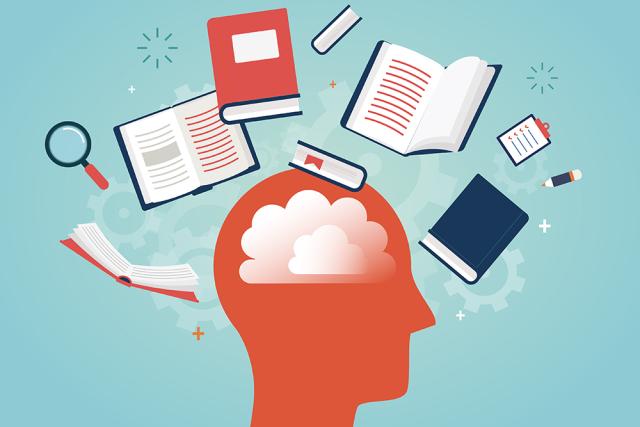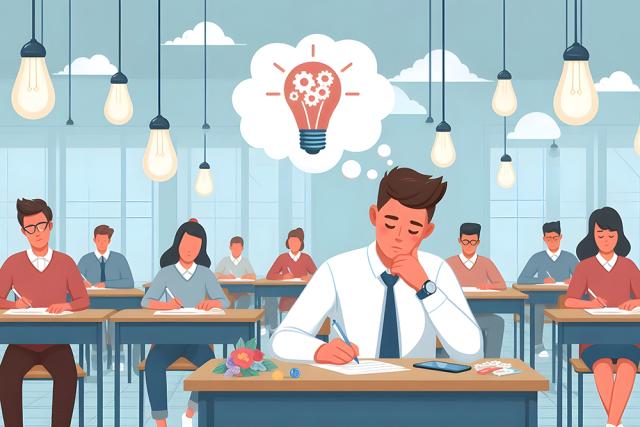
Welcome to our Academic Success Workshop Series, designed to equip college students with essential skills for achieving their academic goals. Throughout these sessions, we'll delve into strategies for boosting motivation, mastering self-regulation, overcoming procrastination, and managing time effectively. Additionally, we'll explore techniques for efficient note-taking, enhancing reading comprehension, and more. Whether you're looking to refine your study habits or develop new academic strategies, these workshops offer practical tools and insights to help you excel in your college journey.
Memory and Active Learning

Discover the primary challenges affecting memory and retention. Learn essential techniques to increase retention and retrieval of course content.
Learning Objectives
Understand the Cognitive Processes Involved in Memory Formation: By the end of the workshop, students will be able to explain the key cognitive processes that underlie memory formation and retention, including encoding, storage, and retrieval.
Apply Active Learning Strategies to Enhance Memory: Students will learn and practice at least three active learning techniques (such as retrieval practice, elaborative interrogation, and spaced repetition) to improve their ability to retain and recall information.
Develop Personalized Study Plans Incorporating Memory Techniques: Students will create individualized study plans that incorporate memory-enhancing strategies, tailored to their specific academic needs and learning styles.
Register for Memory and Active Learning
Procrastination and Time Management

Understand common issues with procrastination and develop strategies to manage your time effectively.
Learning Objectives
Identify the Root Causes of Procrastination: By the end of the workshop, students will be able to recognize and articulate the underlying psychological and situational factors that contribute to their procrastination habits.
Implement Effective Time Management Techniques: Students will learn and practice at least three time management strategies, such as prioritization, time blocking, and the Pomodoro Technique, to enhance their productivity and reduce procrastination.
Develop a Personalized Action Plan to Combat Procrastination: Students will create a tailored action plan that integrates time management techniques and specific goals to address their unique procrastination challenges and improve overall task completion.
Register for Procrastination and Time Management
Effective Note-Taking Techniques

Learn how to become an active listener, keep an accurate record of lectures, and organize content through effective note-taking techniques.
Learning Objectives
Enhance Active Listening: By the end of the workshop, students will be able to demonstrate active listening techniques, such as identifying key points and discerning relevant information, to improve the accuracy and completeness of their notes.
Organize Notes for Improved Comprehension and Retention: Students will learn and apply methods for organizing their notes, such as using headings, bullet points, and diagrams, to create structured and easy-to-review study materials.
Implement Various Note-Taking Strategies Tailored to Different Learning Contexts: Students will explore and practice different note-taking methods, including the Cornell Method, mind mapping, and digital note-taking tools, to identify which strategies work best for their personal learning style and the specific demands of their courses.
Register for Effective Note-Taking Techniques
Test-Taking Strategies

Do you experience test anxiety? Concerned you will not achieve the results you want on your exams? Learn effective techniques that will make you a more confident and better test-taker.
Learning Objectives
Manage Test Anxiety Effectively: By the end of the workshop, students will be able to identify the symptoms of test anxiety and apply at least two techniques, such as relaxation exercises and positive self-talk, to manage anxiety before and during exams.
Apply Effective Study Techniques for Test Preparation: Students will learn and practice study methods like spaced repetition, active recall, and the use of practice tests, to enhance their understanding and retention of material in preparation for exams.
Develop a Comprehensive Test Preparation Plan: Students will create a personalized test preparation plan that includes a study schedule, review strategies, and specific approaches for different types of exam questions (e.g., multiple-choice, essay, problem-solving) to maximize their performance on test day.
Register for Test-taking Strategies
Enhanced Reading Strategies

This workshop focuses on simple yet effective techniques to maximize your reading comprehension. It also discusses basic critical thinking skills required to understand complex topics.
Learning Objectives
Enhance Reading Comprehension: By the end of the workshop, students will be able to employ techniques such as summarization, paraphrasing, and questioning to improve their understanding of complex texts and retain key information.
Develop Critical Thinking Abilities Through Reading: Students will learn to apply critical thinking strategies, such as analyzing arguments, identifying assumptions, and evaluating evidence, to deepen their engagement with reading material and draw insightful conclusions.
Implement Effective Reading Techniques for Different Types of Texts: Students will explore and practice various reading strategies, such as skimming, scanning, and active reading, to effectively approach and comprehend different genres and types of academic texts.
Register for Enhanced Reading Strategies
Self-Regulation and Motivation

Emotions and beliefs play a major role in our success. Developing self-efficacy, confidence and effective motivational strategies is fundamental in your college years and beyond.
Learning Objectives
Build Self-Efficacy and Confidence in Academic Settings: By the end of the workshop, students will learn strategies to enhance their self-efficacy, such as setting achievable goals and reflecting on past successes, to build confidence in their academic abilities.
Apply Self-Regulation Techniques to Manage Academic Tasks: Students will develop and practice self-regulation strategies, including goal-setting, self-monitoring, and time management, to effectively manage their academic responsibilities and reduce procrastination.
Implement Motivation Strategies to Sustain Academic Engagement: Students will develop a plan to identify personal motivators, explore intrinsic and extrinsic motivators, apply positive reinforcement, and regularly reflect on progress towards academic goals.